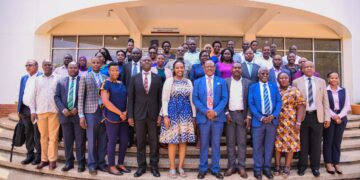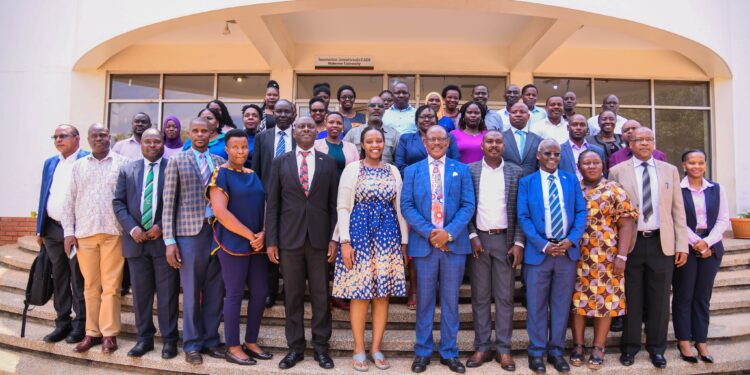Makerere University held a vibrant research dissemination workshop on Thursday, July 31, 2025, celebrating the achievements of its PhD Completion Grant Initiative — a programme designed to help doctoral candidates finalise their studies through targeted institutional support.
Held at the School of Food Science Conference Hall, the event brought together faculty, researchers, and university leadership to showcase research outputs, share lessons, and underscore the vital role of homegrown academic leadership in national development.
Launched in 2021 under the Directorate of Graduate Training, the PhD Completion Grant Initiative has so far supported 65 doctoral candidates — 28 women and 37 men — by providing modest yet impactful funding to enable fieldwork, data analysis, and thesis completion.
Speaking at the opening ceremony, Makerere University Vice Chancellor Prof. Barnabas Nawangwe commended the Directorate for sustaining the initiative and described the research presented as “inspiring in both breadth and depth.”
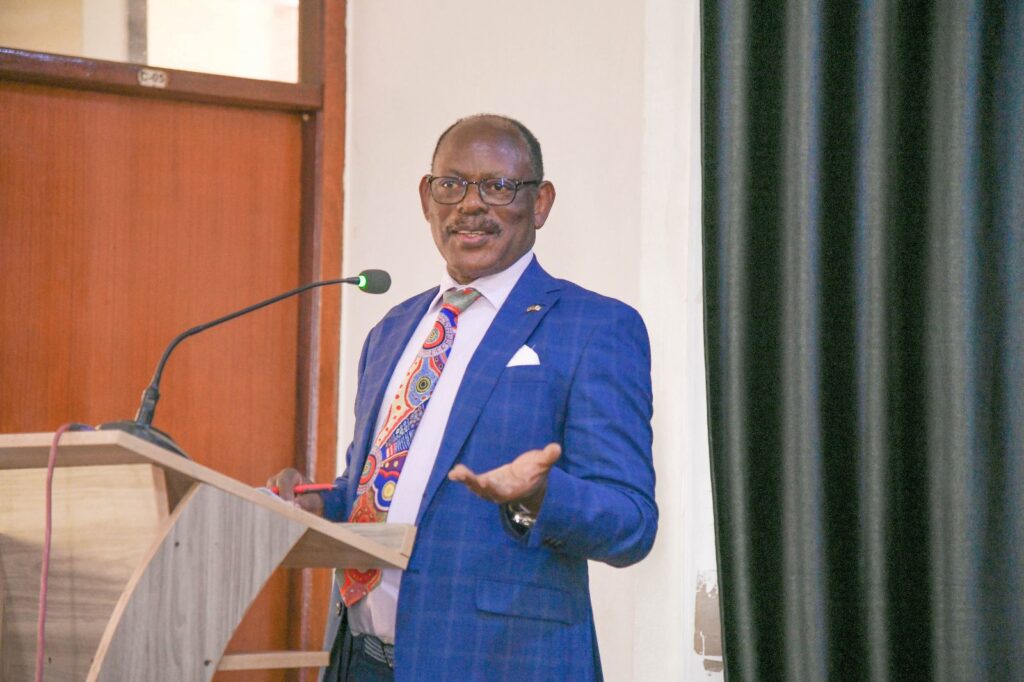
“We need more than a million PhDs to lift Africa out of poverty. The transformation of advanced economies was powered by innovation and research. Africa must follow the same path,” Prof. Nawangwe said.
He highlighted research topics ranging from urban air pollution and antimicrobial resistance, to cultural heritage in the Busoga Kingdom, traditional milk conservation methods, and food safety in baby formula — a reflection of Makerere’s wide disciplinary reach and commitment to development-oriented scholarship.
“Let no one go hungry for innovation,” he added, calling for inclusivity, funding equity, and stronger linkages between research, innovation, and market needs. “Even small devices or ideas — if nurtured — can shift entire communities. We must support our researchers and give them space to breathe.”
In his remarks, Assoc. Prof. Julius Kikooma, Director of the Directorate of Graduate Training, emphasized that the initiative was born out of a practical response to widespread delays in PhD completion — particularly due to financial constraints.
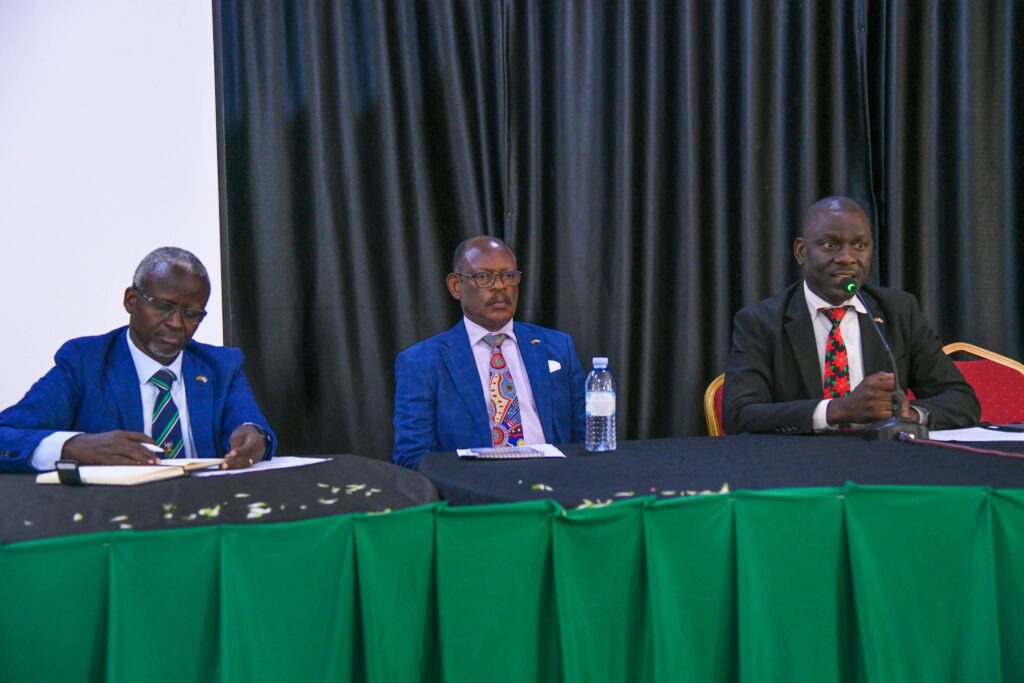
“We could not wait for big donors. We decided to act with the little we had,” he said. “This internal funding has helped many collect data, write dissertations, and successfully graduate. Some have since taken up leadership roles in research, university governance, and policy spaces.”
Prof. Kikooma described the initiative as both a solution to academic bottlenecks and a symbol of institutional resilience. He urged Makerere and other higher education institutions to scale similar models of internal support, calling the programme “proof that even modest investments in graduate research yield significant intellectual and developmental returns.”
Showcasing Cutting-Edge Research
The workshop featured presentations from several PhD candidates who received the grant, including: Moses Okol – Antibiotic resistance in air pollutant bacterial isolates in Kampala, Norah Gulaita – Traditional sour milk (amakamo) processing practices among the Bahima of Kiruhura, William Mussamba – Historical roots of ethnic conflict in Busoga (1890–1967) and Catherine L. Mwesigwa – Sugar content and labelling practices in commercial baby food in Uganda.
The presentations spurred discussions on how Makerere can better connect academic outputs to national and regional development priorities, including public health, food security, environmental conservation, and cultural preservation.
Sustaining the Momentum
Prof. Nawangwe called for increased investment in local innovation ecosystems, warning against over-reliance on external solutions. “Innovation is not just about invention. It’s about provision — solving real problems here and now.”
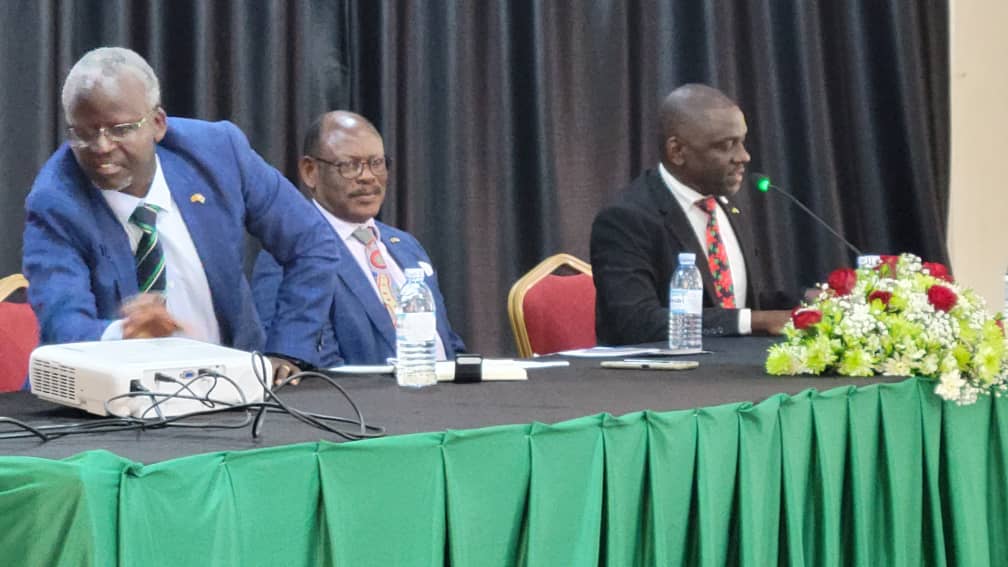
He also emphasized the need for multi-disciplinary collaboration and praised the establishment of the Centre for Technology and Innovation (CTI) as an incubation hub for turning research ideas into viable enterprises.
As the university looks ahead, the Vice Chancellor reaffirmed Makerere’s ambition to ensure that at least 30% of its students are engaged in research and innovation activities.
“Africa is next, but only if we act,” he said. “This programme is a step in the right direction — now let’s build on it, fund it, and grow it.”
Makerere University continues to position itself as a leading research institution in Africa, with the PhD Completion Grant Programme serving as a powerful testament to what strategic internal support can achieve.
As the curtain fell on the workshop, the message was clear: Uganda’s future — and Africa’s — depends on empowering scholars to finish the journey they’ve already begun.
